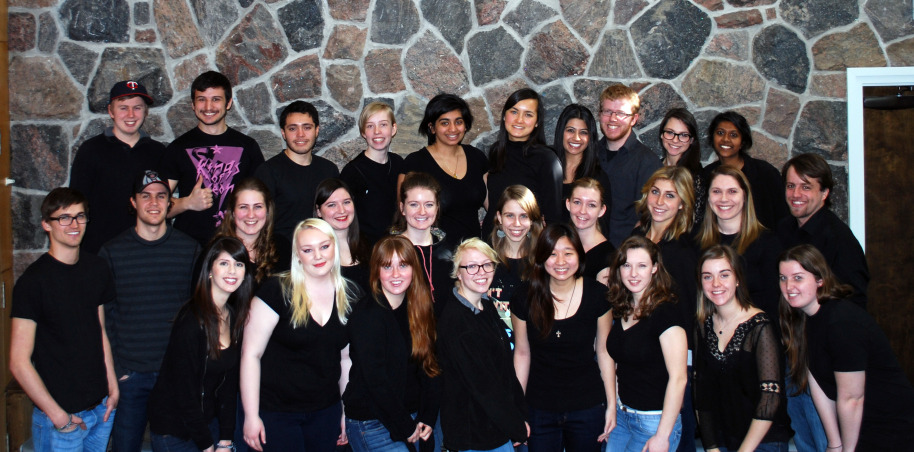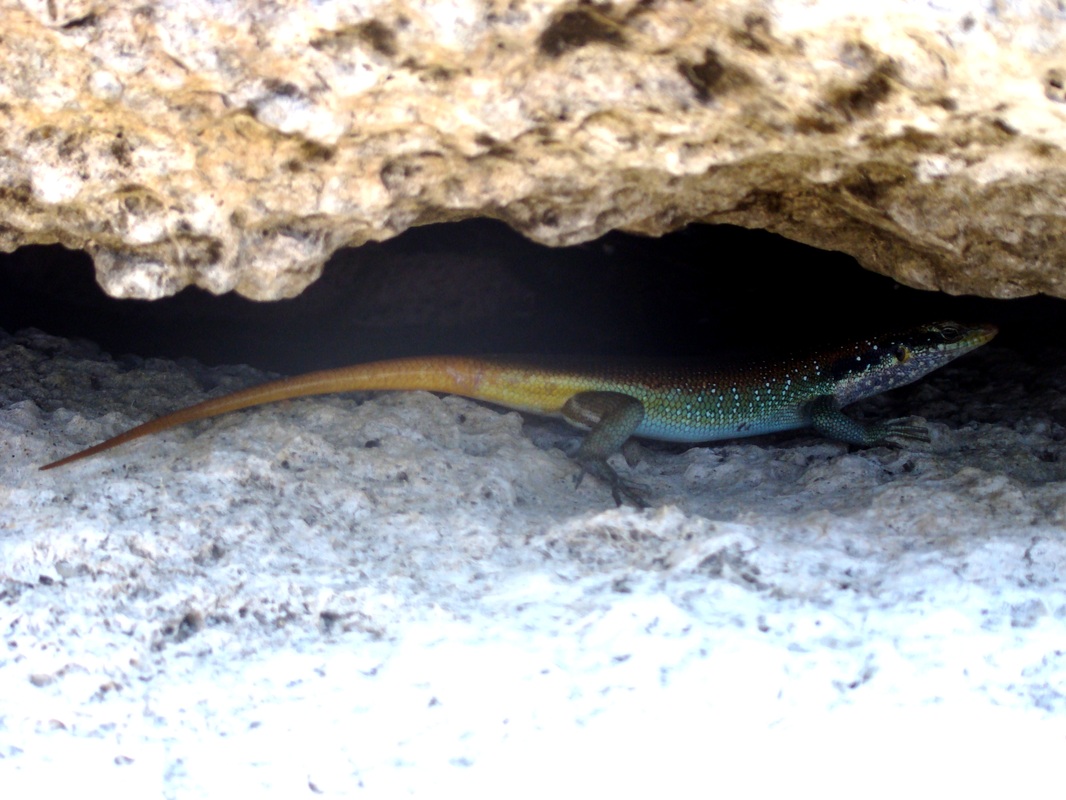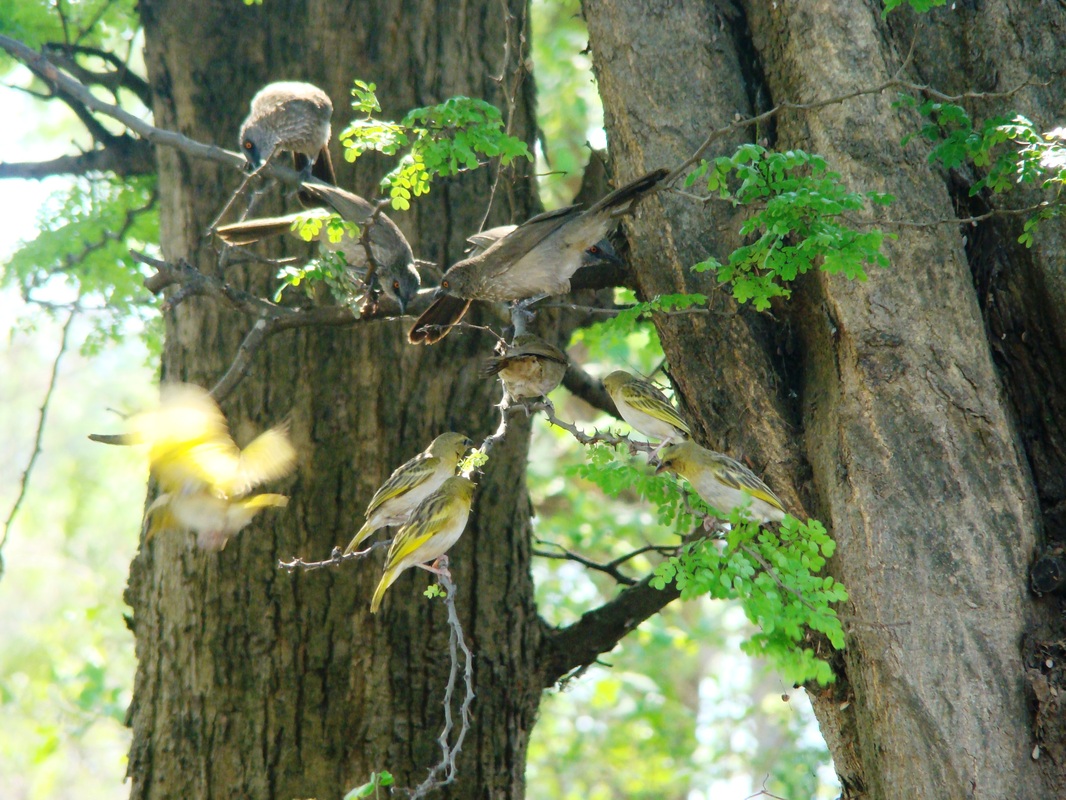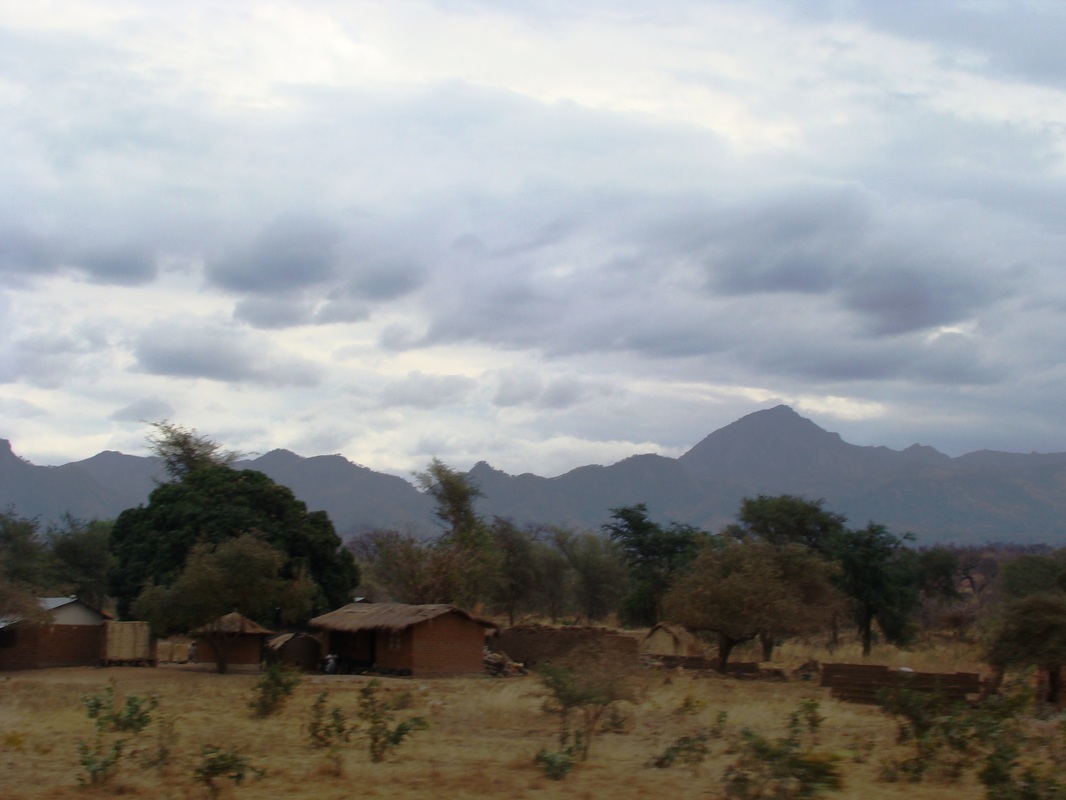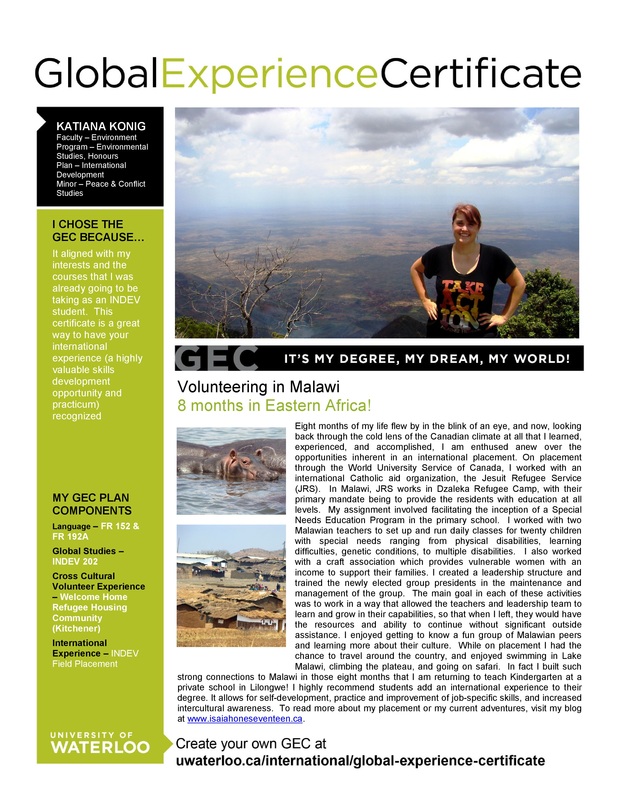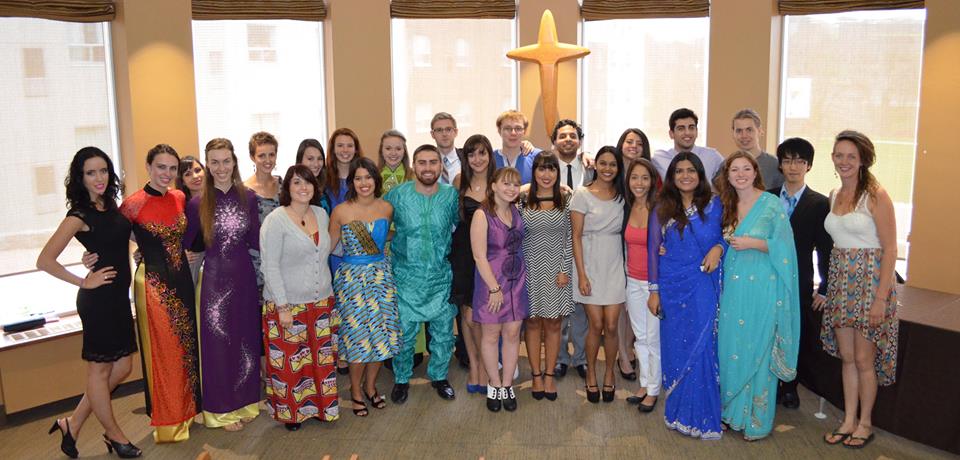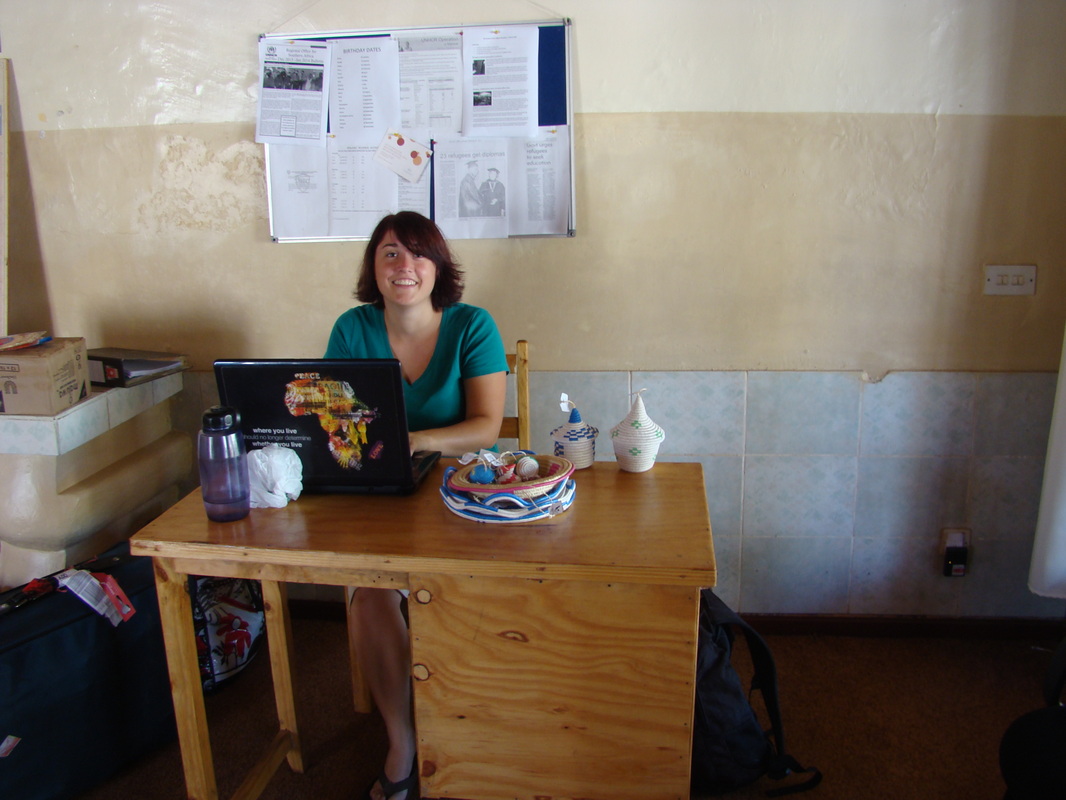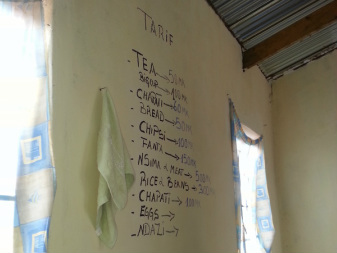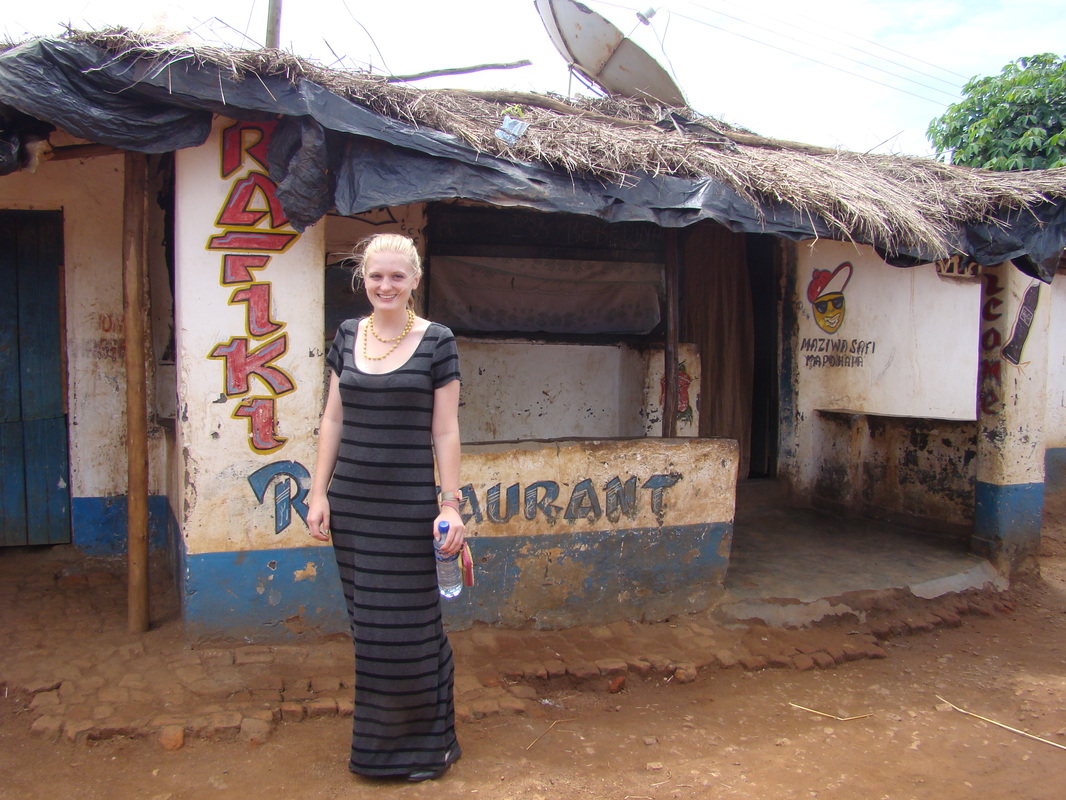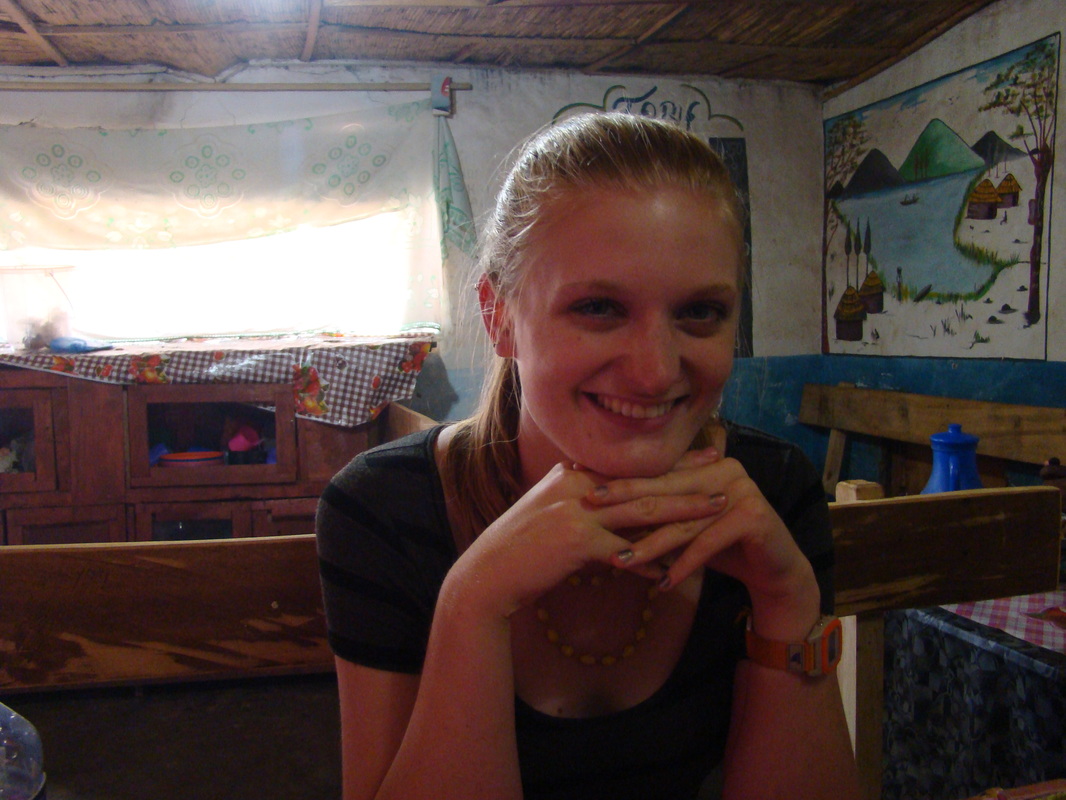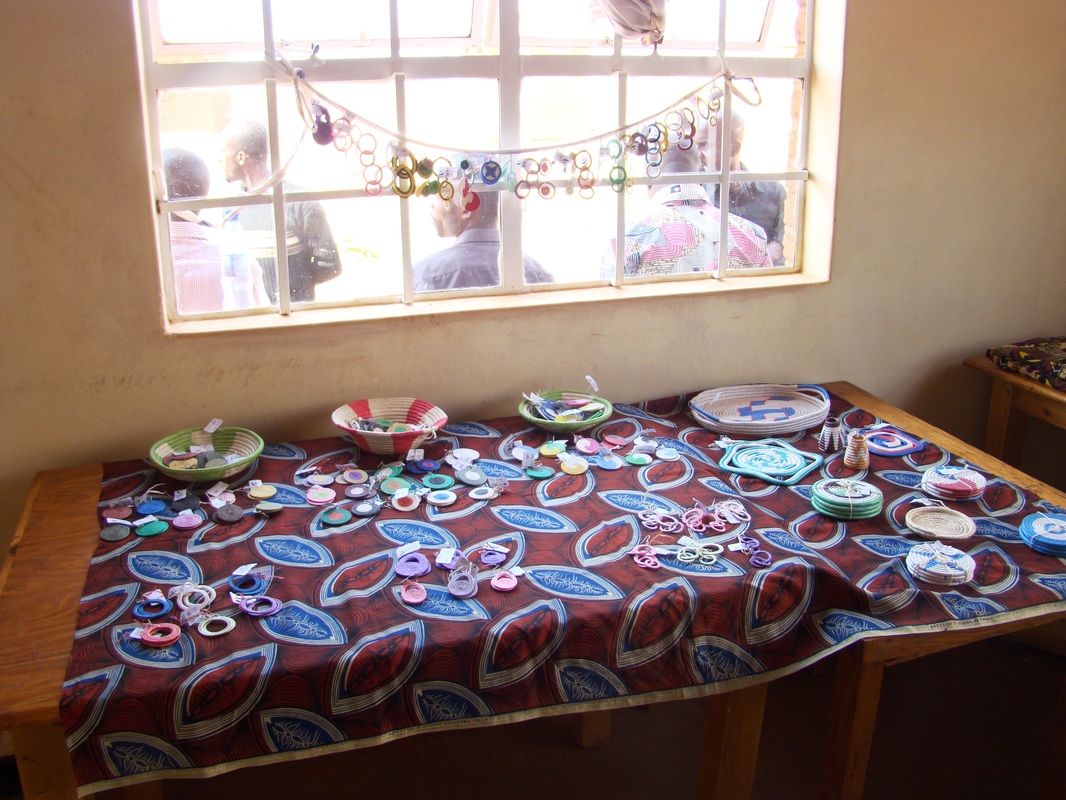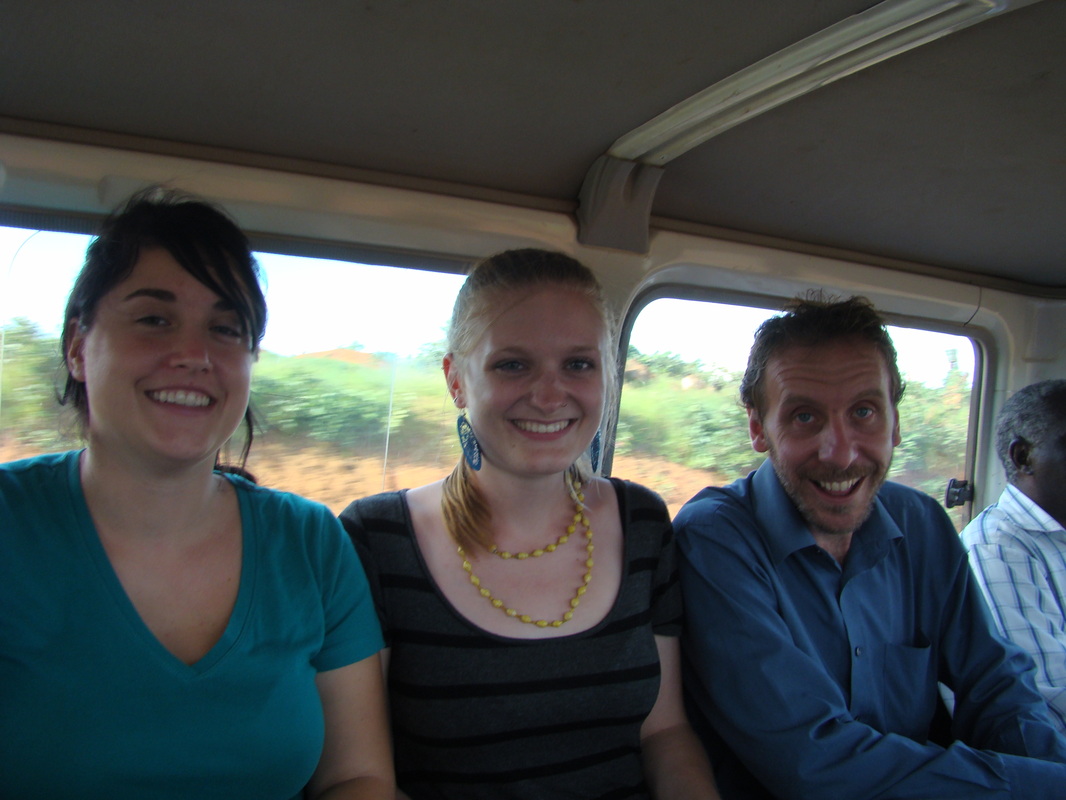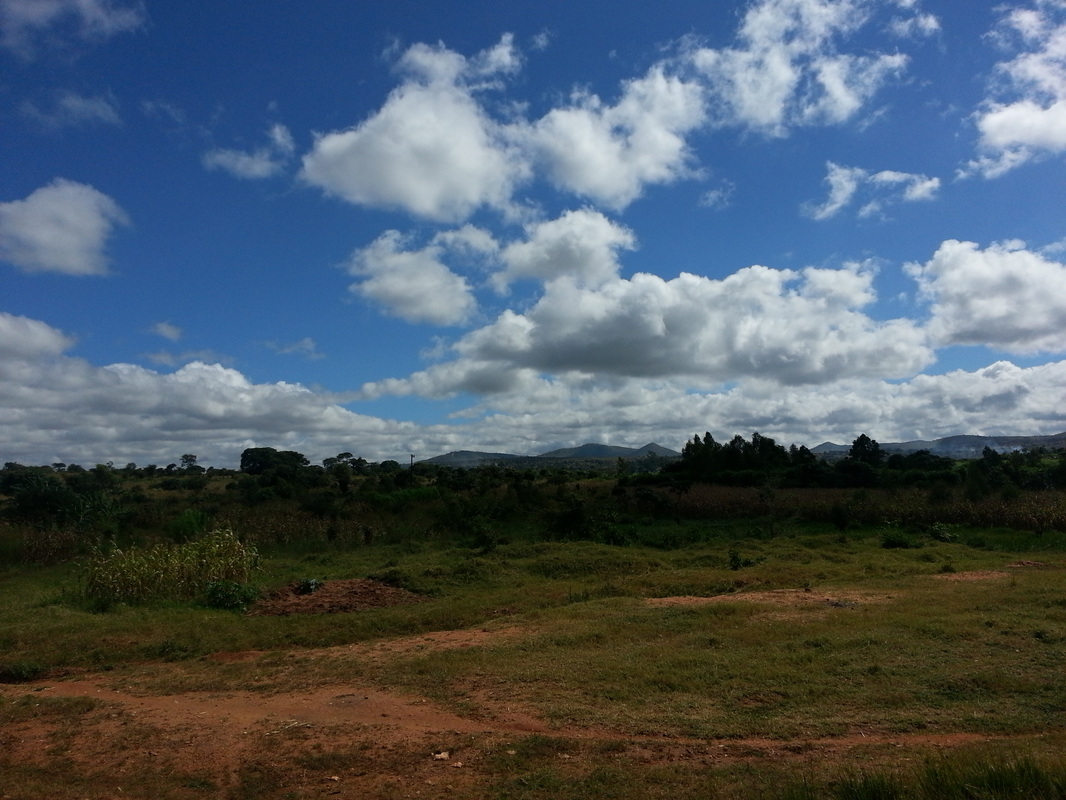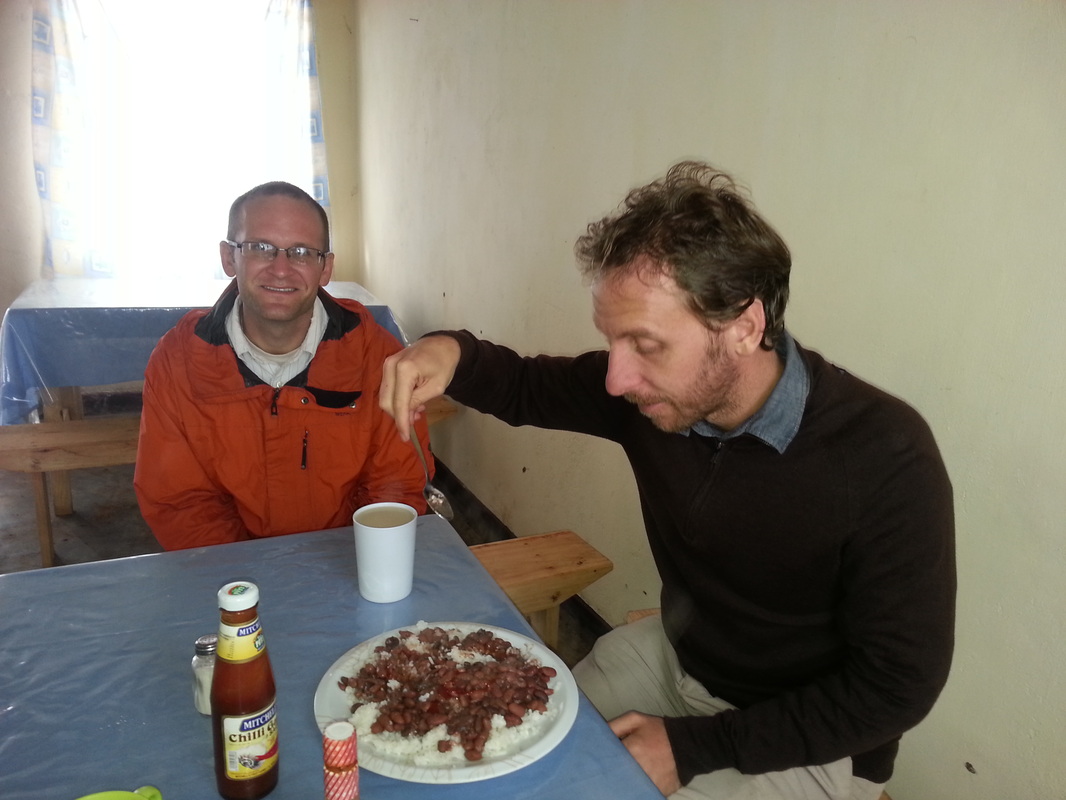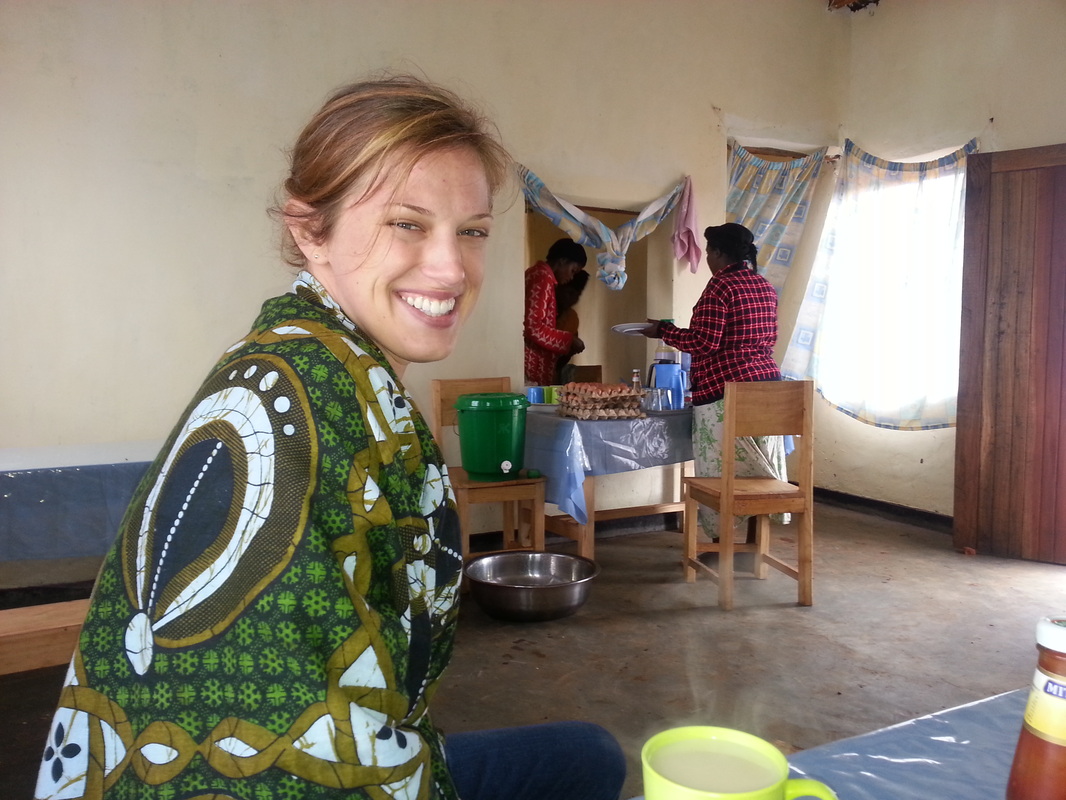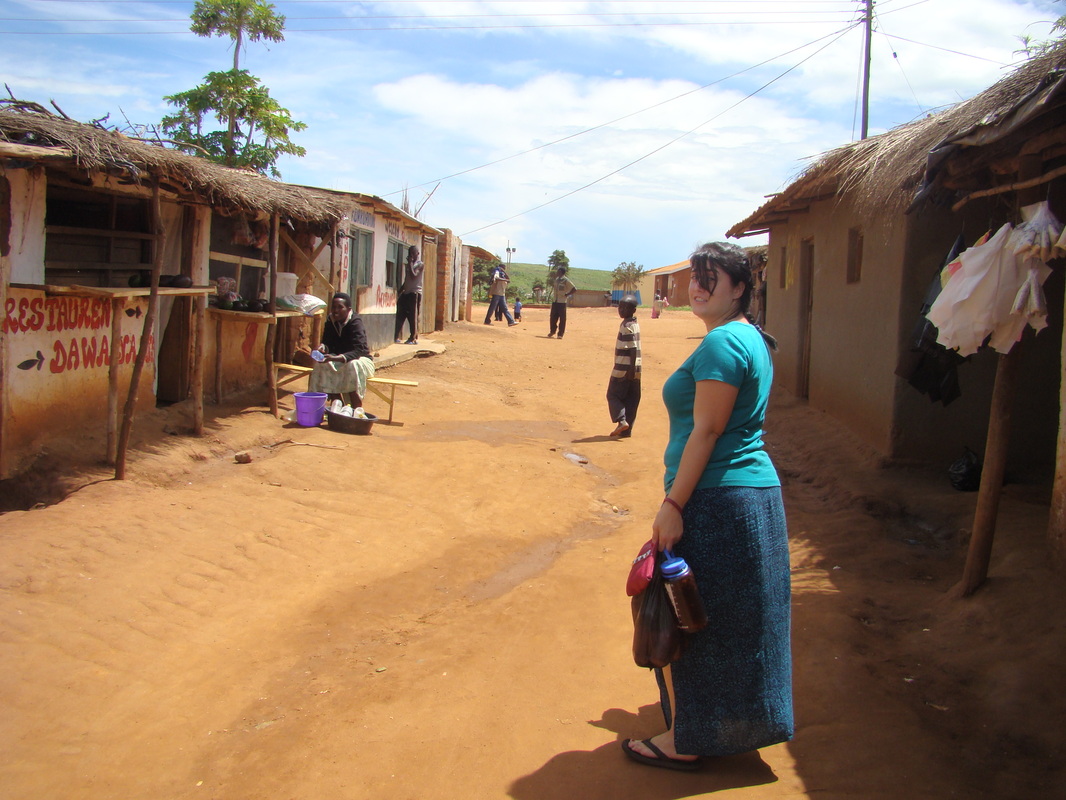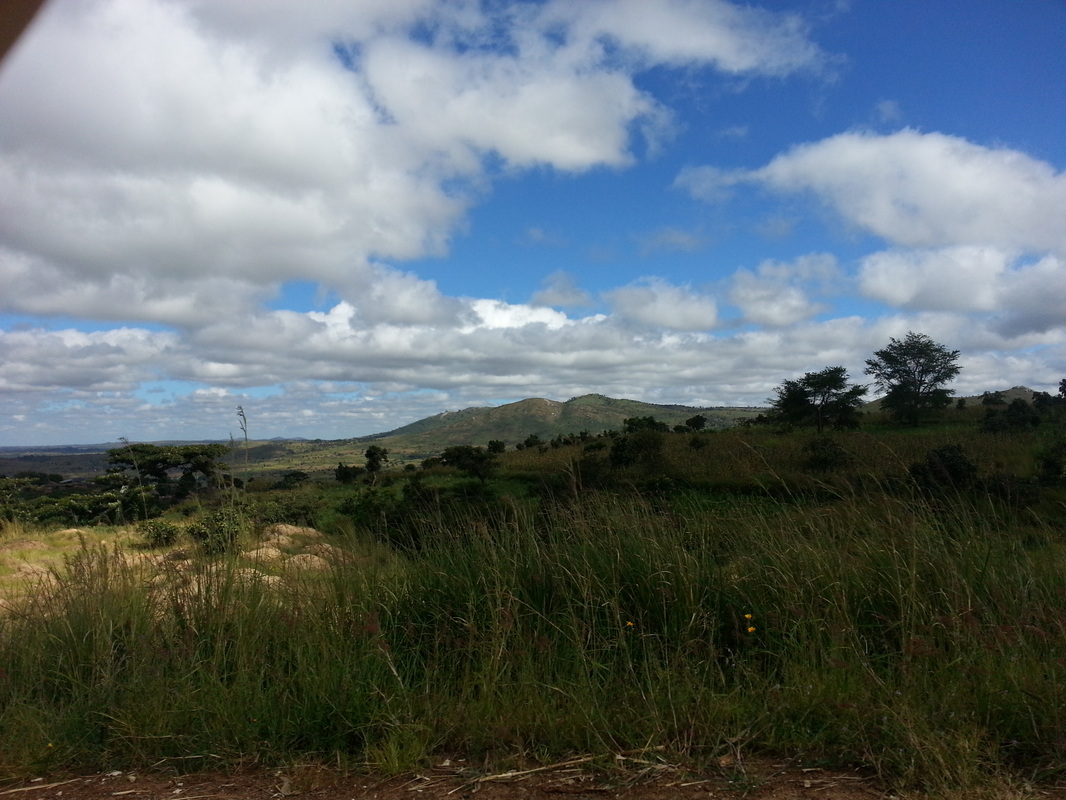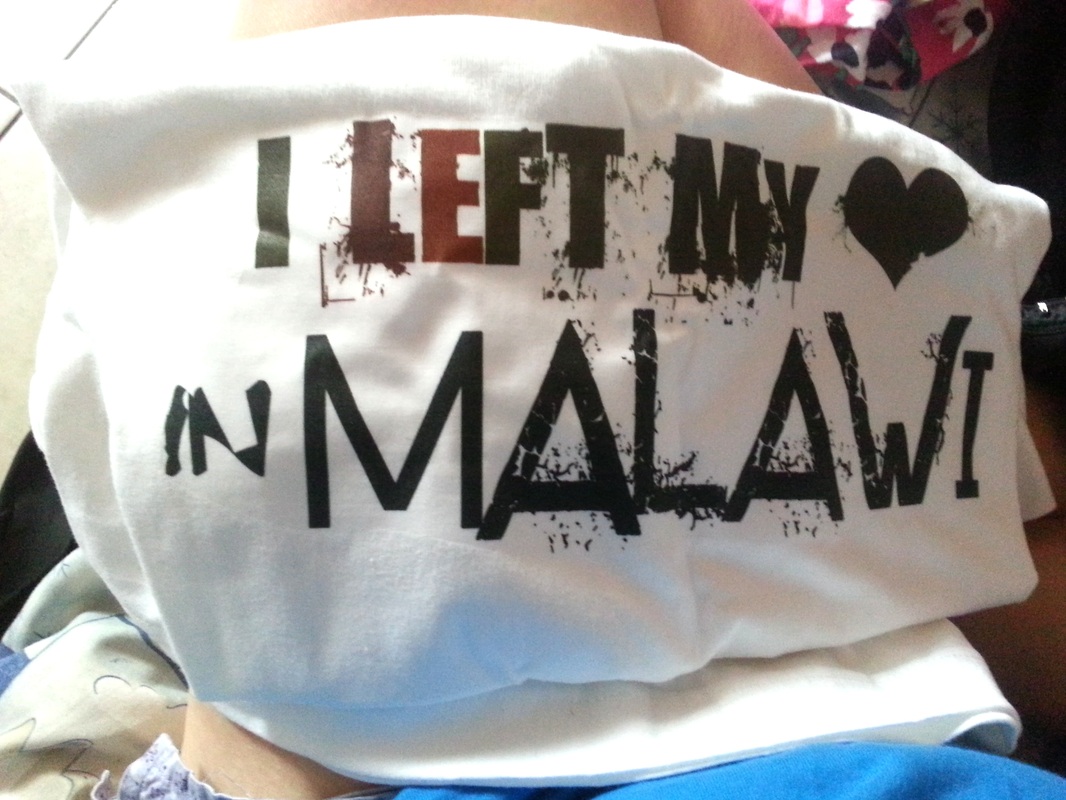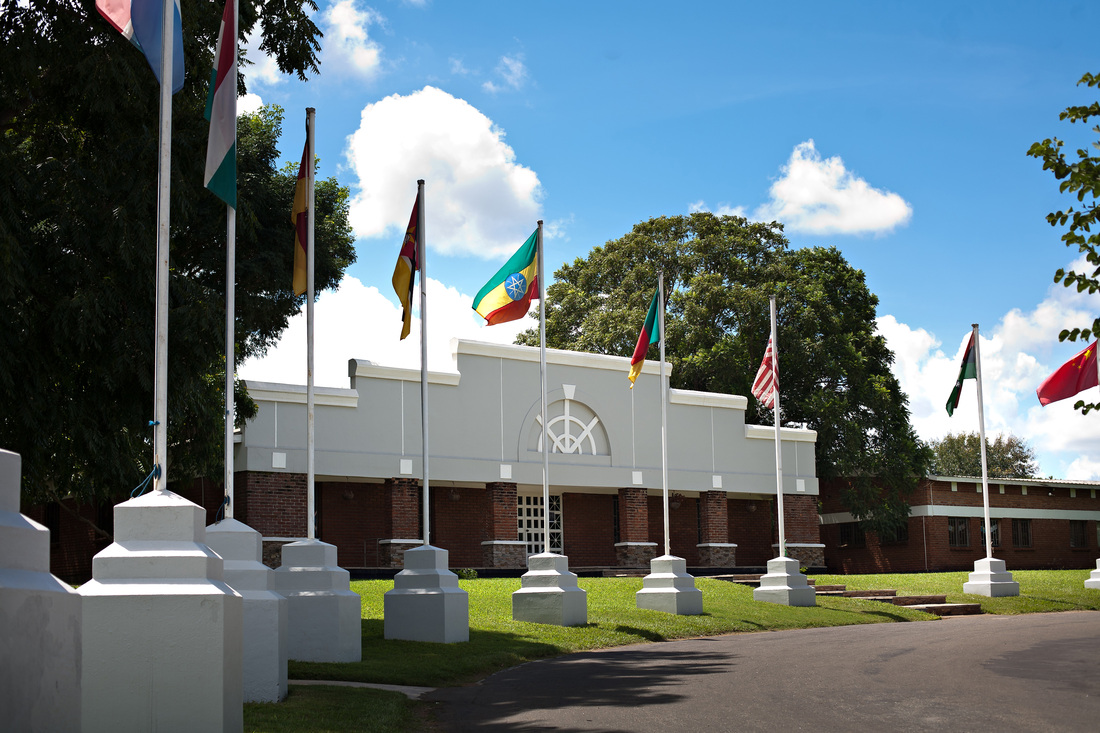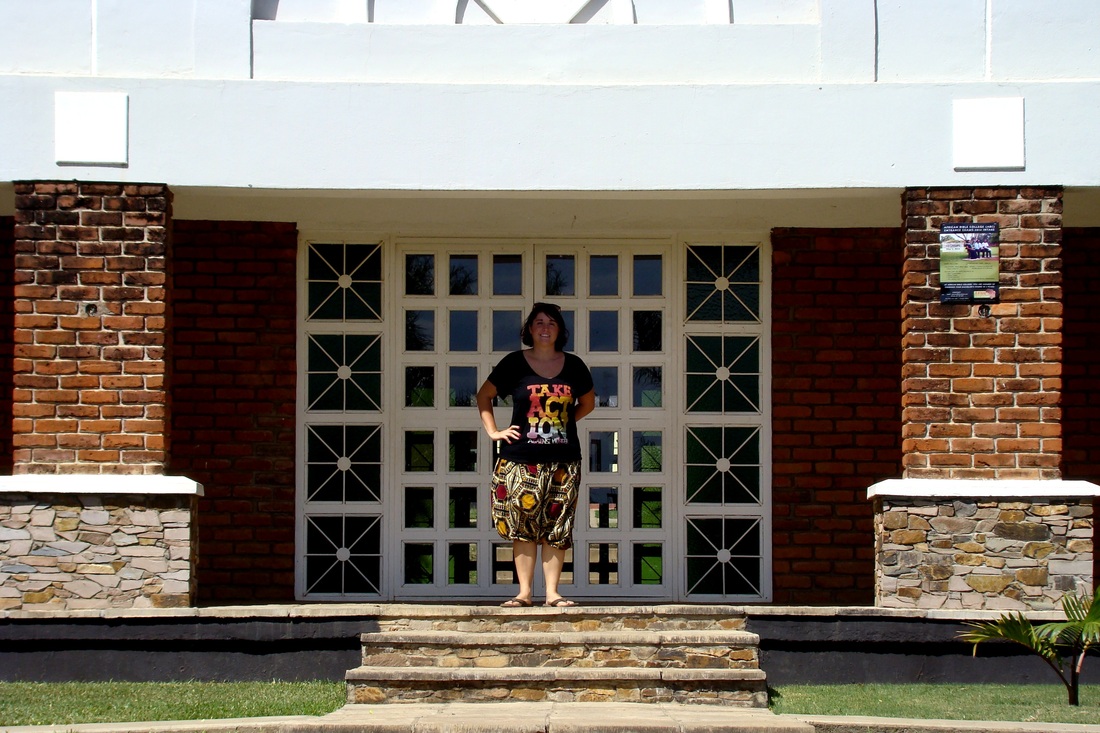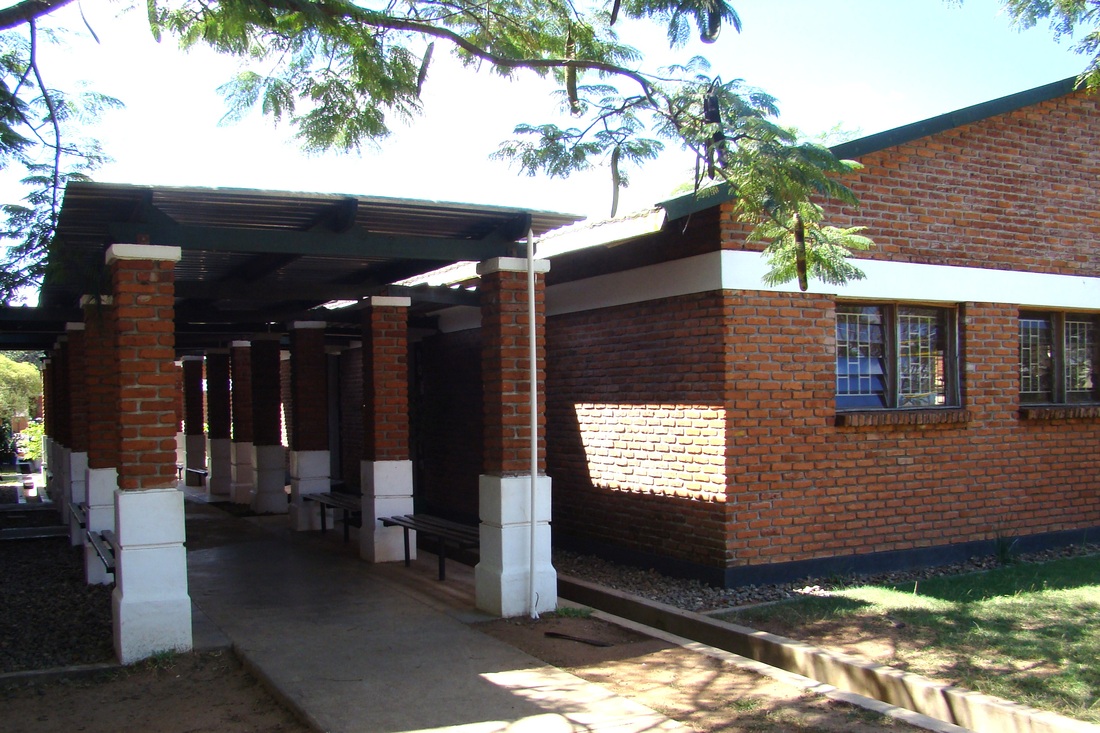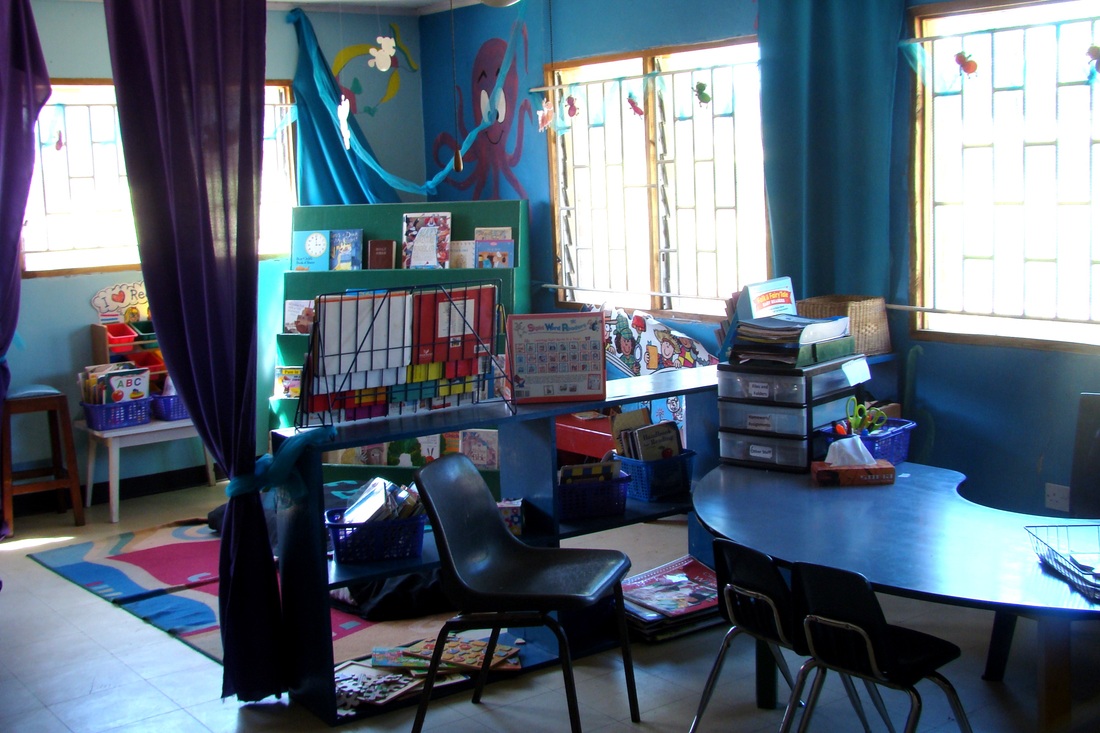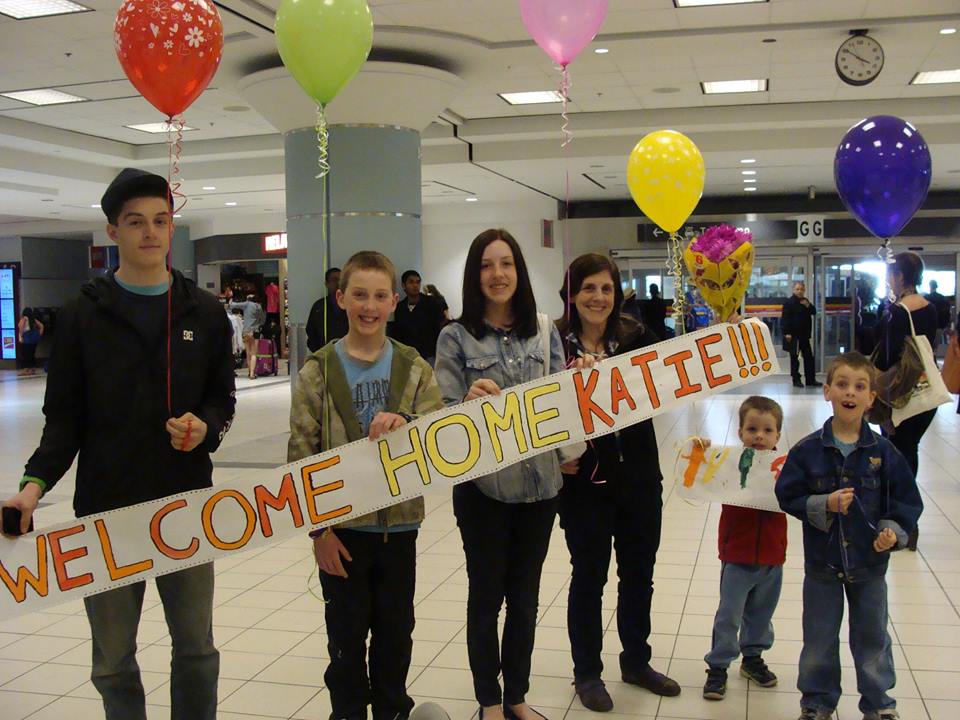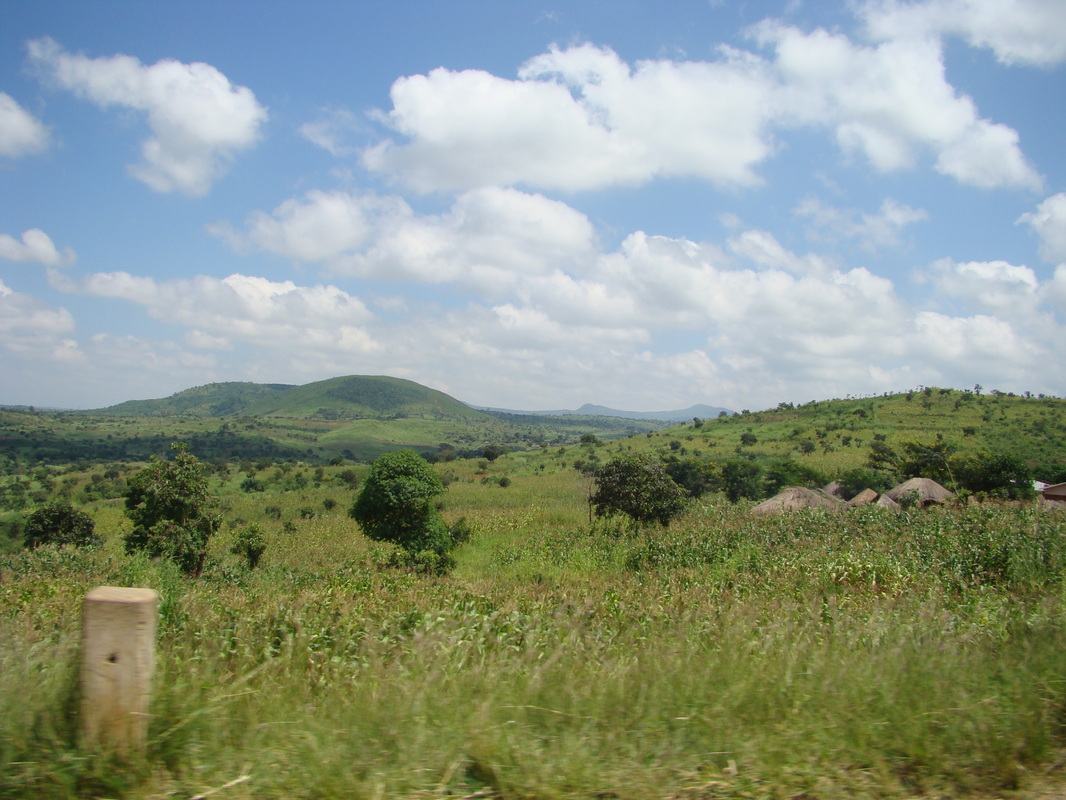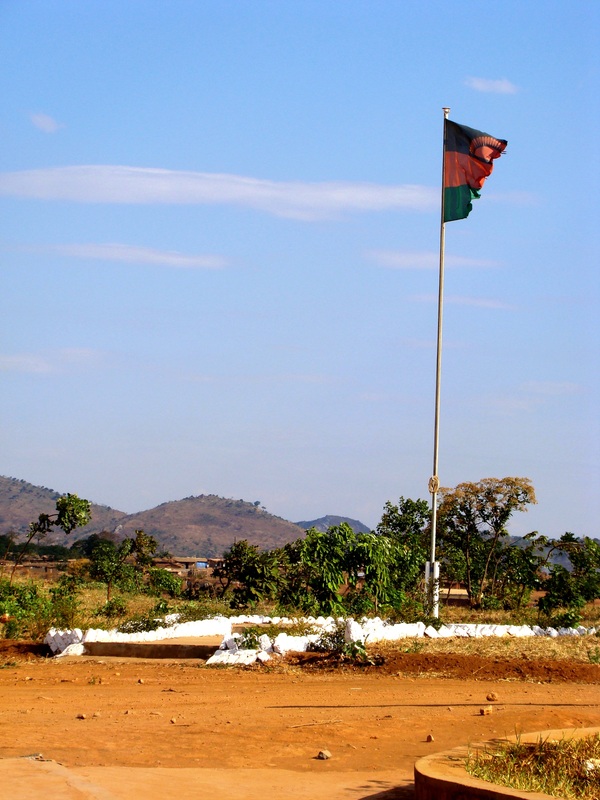This is the week that the INDEVOURs of 2015 are heading out to their respective placements in Botswana, Burkina Faso, Ghana, Malawi, Nepal, Peru, Senegal, and Vietnam. Two lucky INDEVOURS will be joining me in the ranks of those who experience Malawi, and I hope that their placements impact their lives in similar ways to my time on placement last year.
The 8 month placement that the International Development program at the Unviersity of Waterloo requires are some of the hardest and biggest months of growth for most of us who have completed it. Prepare to have mood swings of an intensity you have never before encountered - you can go from loving where you are to vehemently hating it, in a matter of seconds. I pray that for this year's INDEVOURS, they will experience more of the 'loving' than hating', and that when they are able to step back, process, and reflect on their time on placement, they will come to the same conclusion that I did. Yes, as a new program, INDEV has its flaws, but the placement supercedes all aspects of irritation as it prepares new graduates extremely well for work in their field, and gives them an accurate picture of what their future may look like, if they choose to continue in the development field. And Ian and Alison - Takulandirani! Welcome to Malawi!
0 Comments
As promised, here are the rest of the stories that Mr. Mkweza, one of my co-workers in Malawi, told us on one of our trips in and out of camp. The Smart Hare and the Lizard: There was once a chief that had a big lizard that was terrorizing his town. So, he tried and tried to kill it, but he failed because it kept hiding behind the tree. So, the king invited a lot of people, anyone who would come and kill that lizard, he would give him a very good wife - he said " I have a very beautiful daughter and the one who kills the lizard will marry my daughter, and will be the son-in-law of the chief". So, people would come and try to kill the lizard but they were failing, because the lizard would just go around the tree, behind the tree. So, the hare thought itself wise and took a rope, tied it to the leg of a goat, and another rope, tied it to the leg of a dog, and pulled them over to the tree where the lizard was hiding. So, he put them near the tree, and he took the grass, and the hare gave it to the dog, and the dog doesn't eat the grass, so he was beating it to make it eat the grass. And he took meat, and gave it to the goat, gave it fresh meat, and the goat doesn't eat meat, so the hare was beating it so it would eat the meat. So the lizard saw that, oh this man is insane - he is doing the opposite, he is not taking the grass and giving it to the goat and the meat to the dog. So, he said, "No, no, don't do that, just give the grass to the goat, and the meat to the dog". But the hare pretends that he does not understand and was serious and was yelling at the goat and dog "You - you eat this one!", right under the tree. So, the lizard was very furious "Aa-aa, no let me come and help you - I say, take this grass and give it to the goat". So, the hare, was just behind the lizard watching the demonstration of giving the grass to the goat and giving the meat to the dog, and then he killed the lizard! So, the hare succeeded at killing the lizard because of his intelligence. How the Tortoise Got Kicked Out of Heaven: The birds were all invited to a feast in heaven, and the tortoise wanted to go as well, but he did not have wings. So, he asked the birds if each one of them would give him a feather so he could fashion himself some wings and join them. They agreed and each plucked out a feather and gave it to him. The tortoise wove himself some wings and joined the birds on their flight up to heaven and sat at the feast table with them. Then, he asked them if he could be given a new name, because tortoises cannot fly, and he now had a part of each of them on him, so he wanted to be called ‘All-Of-You’. The birds agreed to this, because he did have a piece of all of them in his wings. Then, the angel brought out the first course, and as he was leaving after setting the food on the table, the tortoise asked him who the food was for. The angel answered, “For all of you, of course!’, so the tortoise, now named ‘All-Of-You’ claimed it and ate most of it, leaving only scraps for the birds to finish. Another angel brought out the second course, and again, the tortoise asked who it was for. Again, the angel said ‘For all of you!’, and the tortoise claimed and ate it, leaving scraps for the birds. The birds grew frustrated with this treatment and decided to take back their feathers, so each came and plucked their feather out of the tortoise’s wings. The tortoise, worried now that he couldn’t fly back to his home, asked them if they would please go to his wife and tell her to put all of their mattresses and blankets in the yard so he could jump down from heaven and onto them. They said they would, and flew home. The birds stopped by the tortoise’s house and told the wife that there was a big war coming, and that to protect herself and her house, she should put all the sharp objects around the yard, so that the house would be protected. She hurriedly did this, and the tortoise, looking down from heaven, saw his wife scurrying around the yard and was pleased, knowing that he would soon be able to go home. When she finished spreading the items around the yard, the tortoise jumped from heaven, but instead of landing on a soft pillow, he crashed into axes and knives, which broke him into many pieces. His wife came running out of the house and saw her husband spread about the yard in tiny shards, so she quickly picked them all up and ran to the witch doctor. The witch doctor had a potion to put the tortoise back together again, but it could not make the scars disappear. So that is how the tortoise was kicked out of heaven, and how he got all of the markings on his shell. Mr. Mkweza's Unending (& Favourite) Story:
He says "I could tell this one all the way back to the office and then start again tomorrow and continue all the way back to camp without finishing!" Once upon a time, there was a village. The villagers there grew maize and other crops. Before harvest time, the locusts came and ate everything, so there was a lot of hunger in the village. People thought and said "So this year let us not do the same - we should cultivate and harvest earlier, before the locusts come, because if they come they will eat everything and there will be nothing to eat. So that second year they were very clever, they made the granaries, stores, and before it was completely dry season, they harvested it and put it in the granary and covered everything so they were safe. So the locusts came adn tehy found that all the gardens are harvested and everything was cleared. So they had nothing to eat so they went in the trees and wre just eating some leaves but they tried to find maize but there was no maize at all. Then they landed on one granary - they are like clouds - a lot of them - you know, millions of them - and one locust saw a tiny hole in the granary, and it went through that tiny hole, and it found a grain of maize in a cob of maize in the granary. So, it took that grain of maize and crawled through that same tiny hole and came out and showed the others - "See, I have gotten my maize!" "Ahh - let me go!" - so another locust crawled through the tiny hole, picked up a grain of maize, and came out again. Another locust go through, and another and another and another - I can say that up to tomorrow - because there are millions of locusts and and each is taking only one grain of maize and there are many cobs of maize in the granary, just imagine - so to finish one cob of maize, a lot of locusts are going through and picking up one grain of maize, so it can't end! So people say "Oh - I am tired of hearing you - another locust, and another locust, and another locust" - "Yes, as I say, it is millions of locusts and millions of grains of maze". So to finish the story - another locust crawled through a tiny hole, picked up a grain of maize, and crawled out again, and another locust crawled through a tiny hole, picked up a grain of maize, and crawled out again, and another locust crawled through a tiny hole, picked up a grain of maize, and crawled out again, and... You can't finish! Even if I start again tomorrow, I will not even finish half of the locusts! A neat component available at the University of Waterloo is the Global Experience Certificate. In order to receive this, a student submits a proposal, takes 2 consecutive modern language courses and 1 global studies course, volunteers for a minimum of 20 hours in a cross-cultural setting, and then completes an international experience of a minimum of 6 weeks in duration. I chose to complete this, as I had a built-in international experience and many global studies courses within the requirements of the International Development program. I also chose to take French as an elective, and volunteered at the Welcome Home Refugee Housing Community in Kitchener last summer, helping to organize a camping trip for refugees newly resettled to Canada.
When I returned from Malawi, the GEC coordinator asked me if I would write a short blurb and provide her with pictures to create a one page publication that the GEC office can use to promote their certificate, and I thought I'd share it here with you. As there were, unfortunately, no pictures or videos taken of my capstone presentation, I thought I would share some of my slides and script for those of you who were hoping to hear it. 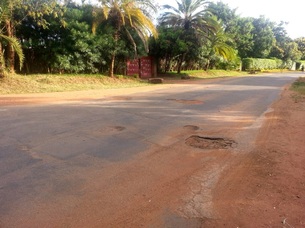 Hello! My name is Katiana and I will be giving you a snapshot of some of the potholes I encountered while on placement, and share methods that allowed me to remove, resolve, or work around them. For the last eight months, I was living and working in Lilongwe, Malawi, in Dzaleka Refugee Camp with the Jesuit Refugee Service of Malawi. And, like most life events, and the placement experiences of my fellow cohort members, my time away was riddled with good, bad, inspiring, strange, and blah moments. 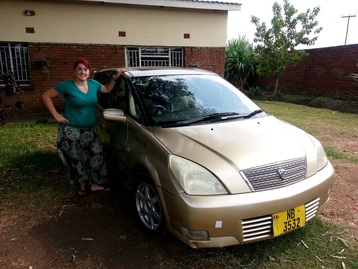 Let’s frame this in the story of my experiences driving while on placement. Lilongwe is a sprawling city, and having a personal life is greatly aided by a car, as it gets dark at 6 pm, after which it is no longer safe to be outside unless in a vehicle, and taxis are rather expensive and can be unreliable. So, a couple of months into placement, I bought a car – my first! And yes, it did make life easier… when it was working. But, I was driving it during the rainy season, I lived on a particularly horrible dirt road, and the car I bought does not have much clearance. So I became very well acquainted with the potholes that I needed to dodge, slow to a crawl to survive, and, yes, sometimes bottomed out in. Not to mention the many goats, chickens, people, bicycles, and other drivers that I needed to pay attention to. Working in a development agency happened to have a lot of parallels to this journey, and as I learned to adapt my driving style and skills to Malawian roads, I also learned how to navigate the complexities of working in an environment of culture clashes, delicate hierarchies, and a workload-staff imbalance. 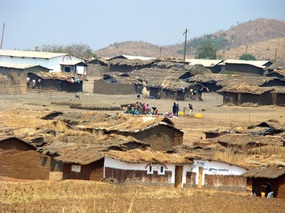 Dzaleka Refugee Camp is a permanent camp, meaning that buildings are generally mud brick, and residents have often lived there for 10 to 15 years. Most residents are from DRC, Rwanda, Burundi, Eritrea, or Somalia. The Jesuit Refugee Service works to provide education, at all levels, to the residents of camp, and to Malawians from the nearby villages. Programs range from preschool, primary, and secondary school, to college credits, vocational training, and include a few income-generating projects. The staff of JRS are dedicated individuals who really live out the JRS motto of accompanying, advocating for refugees and displaced people, and serving them, and I was honoured to be able to join them for eight months. My original role at JRS was to work with the continuing education program to create a new sustainable agriculture course and work with the students in the community garden. A secondary task was to work with the Umoja Crafts group, an income-generating project for vulnerable women. But remember my analogy of potholes, and the undeterminable depth of the one below will give you an idea of where I am headed.  A month into my placement, the head of the JRS office decided that volunteer hours could be better used in a different sector of their work, and I was reassigned. My new task was to facilitate the creation of a special needs education program in the primary school – not of any environmental focus which is what INDEV aims for, and nothing that I have training in. I started with two teachers who were trained in hearing and visual impairments, but had no knowledge in the realm of general special needs. They had additional responsibilities and were only able to dedicate part of their weeks to the Special Needs Education Program. We had an empty classroom and very few resources with which to outfit it. There were twenty children that we evaluated individually and chose to include in the class, and this group had extremely diverse special needs - some of them were cerebral palsy, after-effects of polio, physical disabilities, hearing impairments, learning difficulties, and Down Syndrome. I had no specialist training, and as recent transplant, no connections in Lilongwe. We were off to a slow start, and I felt overwhelmed, and simultaneously found that I had too much to do, and nothing I could do. 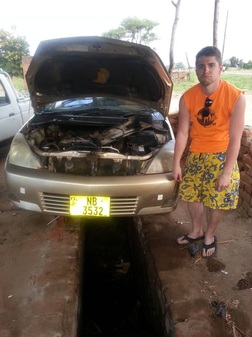 After wallowing in despair like a good literary heroine, I pulled myself up by my, well I was going to say bootstraps, but considering the rare times I actually wore shoes they were flipflops… I reframed the experience, and realized that there are a lot more things that I CAN do than that I can’t. I have been privileged in the education and critical thinking skills I have been equipped with, and my international contacts are a great resource. Even broken and missing parts can’t keep my car from continuing to, somehow, chug along and make it to the destination. 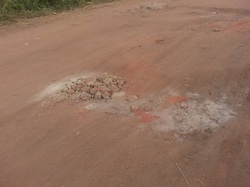 And that is my aim today. To show the future students, and to share with you, ways that you can surmount obstacles… or even, if I dare say it – circumvent them. There are ways to get stuff done that require a shift in attitude, an altered perspective, and a realization that our ‘outsider’ realities allow us to propose changes that people embedded in the organization and culture may not see as options. First of all, I added the Umoja Crafts group back into my mandate, as they had no internal leadership or management that could sufficiently run the organization. They had never been taught the skills to learn how to stand on their own. Part of JRS Malawi's new directives included adding more income-generating activities, and the Umoja Crafts group was the prototype, helping them to grow and learn how to succeed without outside assistance was a huge and needed step. I spent a lot of time doing research on special needs and teaching to specific needs, and passed that knowledge on to the teachers placed in the classroom. I also approached contacts overseas and in the country to get additional information and resources to outfit the classroom. Classes commenced, and with some continued guidance from me and specialists that I was able to connect with, the program began to breath. I left the Umoja Crafts group a few weeks ago, with a functioning democratic leadership system, a confident leadership team, and clearly outlined steps that we worked together to write that will ensure their continued future development and success. The SNE Program was also running smoothly – with regular attendance from children, progress in their learning goals, and teachers who feel more confident in their abilities and who are better able to do their jobs with the supplies that are now present in the classroom. One example of this is when some of the children learned how to use building blocks – a surprisingly difficult task for them to grasp, and so rewarding when they began to build more than simple towers. 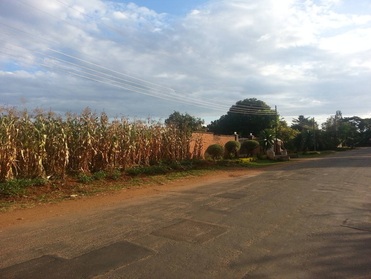 Placement was a drawn-out process of learning how to properly fill potholes, and the strategies that I developed are ones that will help me to succeed in future jobs, and I hope, that you will also be able to apply. How I made the most of placement – both at work and in my personal life: ask questions all the time, and expect to learn from those around you. Read others’ experiences and take in their knowledge – I read many blogs and journal articles and books to learn how to best make the changes that needed to happen. Don’t take for granted your ability to research and think critically – these are skills that a lot of people I encountered were not able to develop or use to their best advantage. Reach out for help – develop a support network, ask previous students and field-specific professionals for their advice! Show respect, but also speak up – learn that tenuous balance. If you don’t have work to do – take on co-workers overload, make up jobs (in the sense that, you may see needs where the organization doesn’t perceive them), vocalize your skills and ask how you can put them to use, and when you are given a task to do, assume you can do it – again, research and critical thinking skills take us farther than you might expect. And honour and celebrate the human element of your experience, and that of those around you. Thank you. Yesterday was a huge day for the INDEVOURS of 2014. We each presented a ten minute capstone presentation on our placement experiences to a panel of judges who are development practitioners, and an audience of professors, fellow students, and members of the public. It was fascinating to hear eight months of my friends' lives distilled into ten minutes of what they learned, how they changed, and observations of the cultures we lived in. Thank you to all the INDEVOURS for being honest, baring your hearts and personal experiences to an audience, and for supporting each other during the long day. At the end, a people's choice award and a judge's choice award were presented to two of us: Liam's pondering of the 'white men do it best' attitude and question about whether or not to compromise won the people's choice award, and my 'Potholes of Placement' and advice for future INDEVOURS resulted in me receiving the judge's choice award (totally shocked and amazed, folks - there were amazing presentations all around, and I definitely did not think I had a chance). We had St. Paul's University College rings presented to us in a small ceremony led by the core team of staff who have headed our program, and then had a wonderful celebratory dinner with those UW staff and the INDEVOURS 2015 who are beginning their spring term prior to going out on placement. It was a great way to round out four years of hard work, relationship building, and personal discovery. And with that final flourish, we have passed the baton on to a new cohort of INDEVOURS to continue to improve the program, become development practitioners through a mix of theoretical and practical application, and to create change in this world of ours. This ending also brings about a new beginning - I am a graduate, a newly minted development professional, and I have two and a half months before my next adventure kicks into high gear! So, welcome to the redesigned blog, which will be following me into this era. Life is good, and I will be sure to keep you all updated on the exciting happenings that occur as I begin to prepare to move to Malawi to teach at ABC Christian Academy. But for now... I'm coming home. I thought I’d share what typical work days looked like for me. On Mondays, we work in the office in Lilongwe for the whole day (7:30am – 4:30pm), and on Fridays we do the same, though we leave at 1pm. On Tuesdays through Thursdays, we work in the office for an hour, and then pile into the Land Cruiser and head out to camp. It takes between forty-five minutes and an hour to reach Dzaleka, and the transport time is spent working on computers, conducting meetings with other staff in the vehicle, and chatting. When we arrive in camp, I generally head over to the Special Needs classroom and check in with the teachers and students. On some days, I spend an hour or two observing and helping out in the class, but on most days I have errands to run or other meetings to attend – for instance, with the Umoja Crafts group. Around noon, we go to lunch at one of our routine restaurants – either Shabani’s Rafiki Restaurant, or a new restaurant opened by a group of vulnerable women with support from JRS. After lunch, we walk through the market and pick up any vegetables or other items that we might need, and then head back to the office. My afternoons are frequently spent working on the computer, completing research, writing reports for the classroom, and emailing with contacts for the special needs class. At 3:45pm, everyone piles back into the Land Cruiser and we drive back into the city to arrive for the end of the work day and head home at 4:30pm. Evenings often involve working on papers for school assignments, trying to cook dinner in between power or water cuts, and hanging out with friends. However, because days in Malawi start so early, a late bedtime is around 9:30 or 10pm!
As wonderful as it is to be back in Canada and to get to see all of my family and friends on this side of the world, leaving Malawi was one of the hardest things to come to terms with. For many months, I simply refused to acknowledge it as an option, and avoided the subject. However, when my last set of housemates left at the end of March, their final countdowns spurred my own, and the horror of having only a month left in the warm heart of Africa started to make reality set in. I am an ultimate planner, so I began to plot out exactly how I was going to pack, and make lists of all the things I still wanted to do and see. Looking back, I think there were only a few things that I was unable to squish into my last few weeks, and those were a dinner out with one close friend, and one final church-pool-jazz Sunday. (Irking me no end is the fact that my brother is spending this weekend in Malawi before heading on to Egypt, and my friends have promised to give him the Sunday experience… gahh!! Oh well, I am glad he gets to enjoy those places as well!) The end of my time in Malawi also marks the near completion of my Bachelors degree in Environmental Science. As of Monday, I will be in class for two weeks, completing a debriefing process and preparing and presenting a final report. I will be graduating this summer with a major in International Development, and a minor in Peace and Conflict Studies. This means that decisions for the future have also been monopolizing much of my brain space over the past few months. At the beginning of the placement, my goals were to come home and complete either a Bachelors of Education or a Masters of Library and Information Science. A few months into my time in Malawi, I felt all schooled out, loved where I was, and began looking for jobs in the development sector in Malawi. I did also apply to a few universities for a B. Ed., and got into most of them, but ended up deciding not to pursue that right now. After a long job search and a lot of research on potential online schooling options, I am pleased to be able to share that I will be returning to Malawi in August! I will be teaching Kindergarten and swimming lessons at the African Bible College Christian Academy in Lilongwe. The class will have 18 students comprised of both Malawian and international children, and I will be working with a Malawian teaching assistant. I also found out that there is an online program in the UK that is targeted at international teachers seeking accreditation, the Post-Graduate Certificate in Education. I am debating applying to complete this one-year, part-time program either this year or next. I am ecstatic to be returning to Malawi, and am excited to contribute to the ABC ministry. I will be in class from shortly before 7am until around 12pm Monday through Friday, and will also be teaching learn-to-swim classes for an hour following that on a few days a week. The classes are extremely diverse, and I cannot wait to begin teaching the next generation of world changers! The curriculum used at ABCCA is a variety of Christian curriculums from the US, and I was lucky enough to be able to spend an afternoon discussing the curriculum and class structure with one of the current Kindergarten teachers. ABC staff members are encouraged to join in outreach ministries, and I may end up volunteering in a local crisis nursery, with a prison ministry, or in one of their other programs. The rest of my weekly time in Malawi will continue to be busy! I will continue to be involved in the bible study group that my friend inadvertently started in the fall through conversations with other friends who had questions about faith. I will be working with my pastor to set up a website for our church and will be helping out with the worship ministry as well. I hope to also return to Dzaleka Refugee Camp regularly, to check in with the Special Needs Education Program and the Umoja Crafts group. This exciting development means that the next three months will be busily spent finding a mission agency to sign me on and second me to the African Bible College ministry, fundraising my monthly support, and working a summer job! I will be sure to keep you updated as to developments and news as the summer progresses. For now, it is time for me to unpack from my journey and repack to move in to school for the next two weeks (I think I may just wear all of my winter clothes in layers – brrr!). INDEVOURS – we reunite tomorrow!! Woohoo – I can’t wait to hear all of your stories and dreams for the future!
One of my co-workers, Mr. Mkweza, loves to tell stories, and was kind enough to allow me to record some of them and share them here with you! The recording was done during our ride home from camp, so there is some background noise and various interruptions as people disembark, but I think you will enjoy the story-telling anyhow. It will also give you an idea of what a Malawian accent sounds like! I have a few more stories for a post in the future, but will most likely be sharing the written version of them, as the recording was of much poorer quality. I hope you enjoy listening to "The Deer and the Millipede" and "The Deer and the Tortoise"! A few friends have asked me what a typical day looks like for a refugee in Dzaleka, so I asked one of my friends if he would let me interview him and share it here on the blog. Our interview covered quite a few topics, and I think it will be an intriguing look into the culture of the camp for blog readers.
Theo is the head tutor and a graduate of the Jesuit Commons: Higher Education at the Margins program that JRS runs in Dzaleka. He is 27 years old, and originally from the Democratic Republic of the Congo, but left there in 2009 because of the civil war. What is a typical day like for a refugee? We get up in the morning, fetch water, cook, go to DSTV, DSTV is like where we go to watch games, movies, news. We go there any time of the day – it is not about wasting time – some people go to the library in the mornings, or go to the organizations like UNHCR and JRS to get updates. What is the most difficult part of life in Dzaleka? The most difficult part of daily life here is finding food to eat, because what WFP gives is not enough. Some people go to their fields, but there are not enough, so some people make arrangements with villages to use fields. So understand, it is just eating, sleeping, hanging around with friends, nothing really like, something to do. Thanks to new technologies we can get access to the internet on phones, but yeah, people can get bored. Everyone has the experience at some point where they have everything they need, food, a house, electricity, but you can’t enjoy it, you just think about those future questions – can you get more food, can you get out of this hell and get resettled. So some people, they tell me that when they experience this, they can either join a church or go to a bar. The majority do survive through relationships. If you have today, you need to give it away – for one reason – if you keep it, if you don’t share, you will need others’ help, so you need to invest in other people. When you are in contact with someone, though may not be happy about something, you meet others whose situation is worse, and you think to yourself, ‘I am doing fine’, and this way you can balance yourself. What do you do for fun? I watch movies, play basketball, or run. But I don’t really like to talk – I can enjoy what others are talking about, but to contribute, oh no. I don’t know if it is because I do so much talking here. I think I am a different person when I am here than when I am in camp, because when I am down there I am tired. I just want to listen to music, or I can sometimes go to a bar, but there I just want to be left alone – they can play music but I don’t want to do the talking. Do you have family? No. I just understand a family as any person around me. Like now, I am living with some young men, and that is my family. Do children grow up too quickly in camp or are they able to play and be children? I think it is both. Yah, they can play, and you can imagine, a kid, given 24 hours for games and playing they will never get tired – they just come home because they are hungry or because they want to sleep. So children from age 3 up to age 10 have fun, but upwards from there, it is not so much fun, because they can critically analyze what they are going through, that their needs are not met, and there is no one to blame – your mom and dad don’t have a job or work, they are just struggling to find something to eat. So you find that they are only satisfied with food, but other needs – no. And for women, for girls, you know what happens – some can get into prostitution so easily. It’s tricky; it is a very difficult situation. In a refugee camp, someone can grow and can guide his or her life how they want, but then you get the problem of how that person can support a family, or how their experiences impact their lives – so a man might go outside of his marriage to get sexually satisfied, and the young girls they will not ask much. And young men, again, they can’t date because they don’t have a job or whatever, and it is the easiest way to get satisfied, and it is an opportunity for the young girls to get satisfaction and good food. It is tricky to get those young girls to understand that there is nothing good in this, that it may be helping satisfy their needs and be a nice experience now, but it might not be in the future, but it is very difficult for them to understand that there is not hope (for a marriage). S that’s why you find like anything happening, most of the experience in camp is about relationship, but about tricky relationships – most of the adults doing business together can betray each other. You said that it is difficult for men to date in camp – is that cultural, or what are the reasons why this is? When we are talking about dating or getting married, it is all about love. But now it is difficult to talk about that here in a relationship – if you love someone, that is fine, but the first thing you need to do is satisfy their basic needs. And the culture here, the man is expected to provide almost everything, so now if you can’t, then it is a big issue. And you will find for those young women or girls, they are targeting someone who can support them. So now, the situation has changed, because you can’t choose, just your needs choose, so to be satisfied is difficult. Eighty or ninety percent of refugees are religious, and we try to really follow what the spiritual leaders tell us, but mainly what is seen, not so much wht is not seen. So if you go the market, you will find that most of the women with head coverings and a long dress – you can’t find a young girl wearing a short skirt or sleeveless shirts, so you can see that they are really following what the church leaders are telling them – so where are we getting those early pregnancies in teenagers? The majority of those teenagers have kids but are not married – they are still in the home – I cannot understand how this is happening, but again, I will note that it is just for the needs that they do what they are doing. I had the privilege of attending a youth event at a local church this weekend, called ‘The Gathering’. It began like a normal church service, with worship and a sermon. But it was extremely interactive – the preacher spoke on the country of Malawi, which has now been independent for 50 years, the upcoming elections, and the need to return to the original vision for the country and determine what Malawian’s want their country to be today. He and a colleague then listed a bunch of sectors and asked the attendees to brainstorm short lists of what they did not like and what they wanted to see in each of the areas. It was really interesting for me as a fellow Christian who loves the country, a young person, and a development student, to hear the ideas and dreams that a group of teenagers and young adults had for their country. So I thought I’d share the resulting brainstorm chart with you! “The Malawi We Want”
|
AuthorWelcome! My name is Katiana and I am a development professional pursuing my dream to live out Isaiah 1:17 to the best of my abilities. I am passionate about teaching and working with vulnerable families and children to improve their lives sustainably.
CaveatThis blog is composed of my personal opinions, which do not necessarily reflect the opinion or views of institutions or organizations that I may be or have been affiliated with.
Categories
All
Archives
July 2017
|

